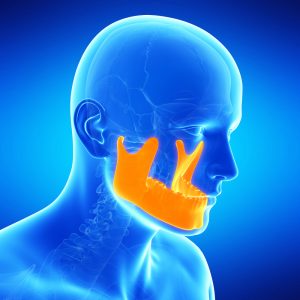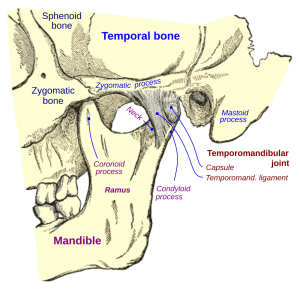Are you experiencing complications after dental treatment or a procedure? Maybe your bridge, crown, gums or tooth are not allowing you to chew normally or you’re experiencing abnormal sensitivity? While some short-term side effects are normal, prolonged post-op dental pain can be problematic.
Normal Responses to Dental Treatment & Oral Surgery

Whether you have a routine oral procedure or a more serious interventional procedure, you may experience some of the following typical discomforts:
- Bruising
- Minor bleeding
- Pain at the site
- Minor Swelling
- Sensitivity
- Chewing discomfort
If you are experiencing a restricted opening, pain while chewing, or bite problems, you may be dealing with more serious issues affecting your jaw joint and muscles. If so, it is important to reach out to the orofacial professionals at Raleigh Facial Pain Center as quickly as possible.
Post OP Concerns 1) Restricted opening 2) Jaw pain 3) Chewing pain 4) Bite problems
Hints of Post-Procedural Concerns 1) Frequent occlusal adjustments 2) Jaw feels tight stiff sore for days 3) Opening is only 1 finger 4) Deviation to one side on opening 5) Frequent breaking fillings, crowns, partials 6) Broken Retainers, spacers, brackets 7) Moderate Wear on oral structures
Potential Problems Experienced During Recovery & How to Address Them
Bleeding - After the procedure, some bleeding is common due to the cutting or disruption of tissue. Rinse or wipe old clots from your mouth, then place gauze over the area.
Dry socket - This may develop after a tooth has been extracted. These are more common among smokers. Placing a dressing with anesthetic in the socket will help ease the pain.
Swelling and pain - Apply an ice pack when you first start to notice the swelling and heat after the first 36 hours. Your doctor may prescribe medication or you can take over-the-counter medication such as Aspirin. If the pain does not ease up within 48 hours, call your doctor.
Listen to post op instructions- they may save you pain, money, and time. As boring as they maybe, they have a purpose.
Let Us Help Alleviate Your Post-Procedural Dental Problems
No two mouths are the same! Ongoing pain can be debilitating, discouraging and frustrating so let board certified and residency trained Dr. Keith A. Yount and the specialists at Raleigh Facial Pain Center be there for you. Reach out to us by phone at (919) 781-6600 or online for more information about oral care.



